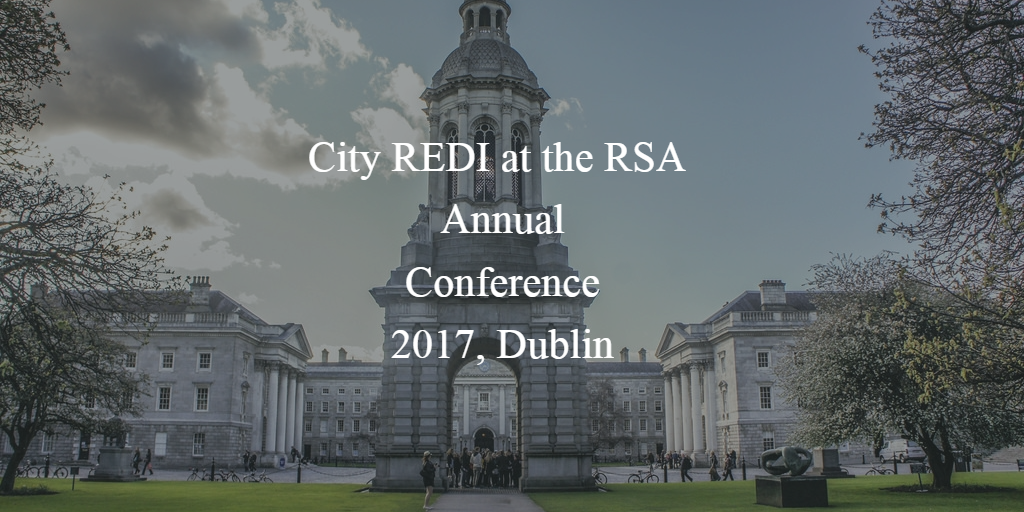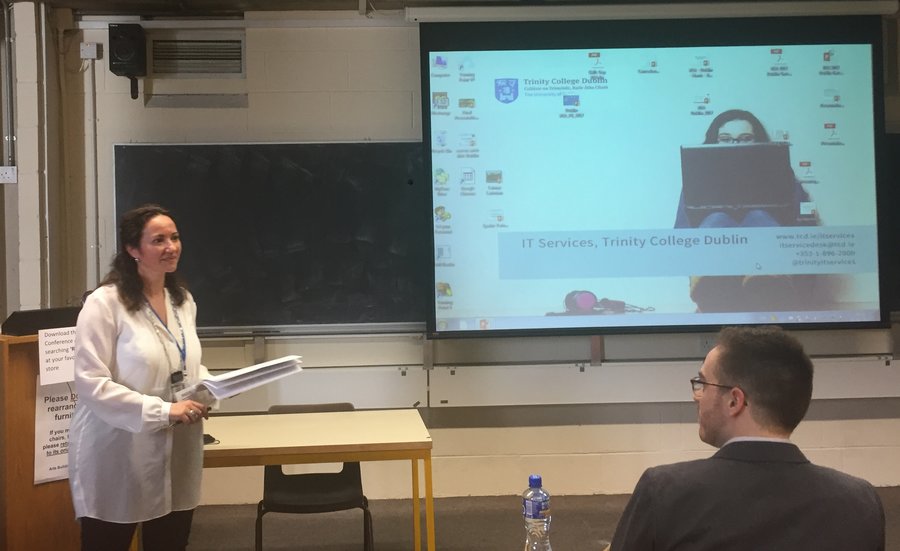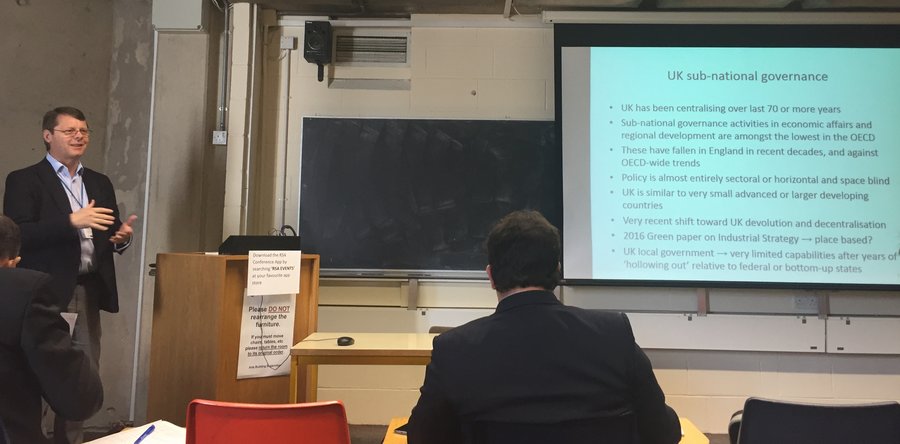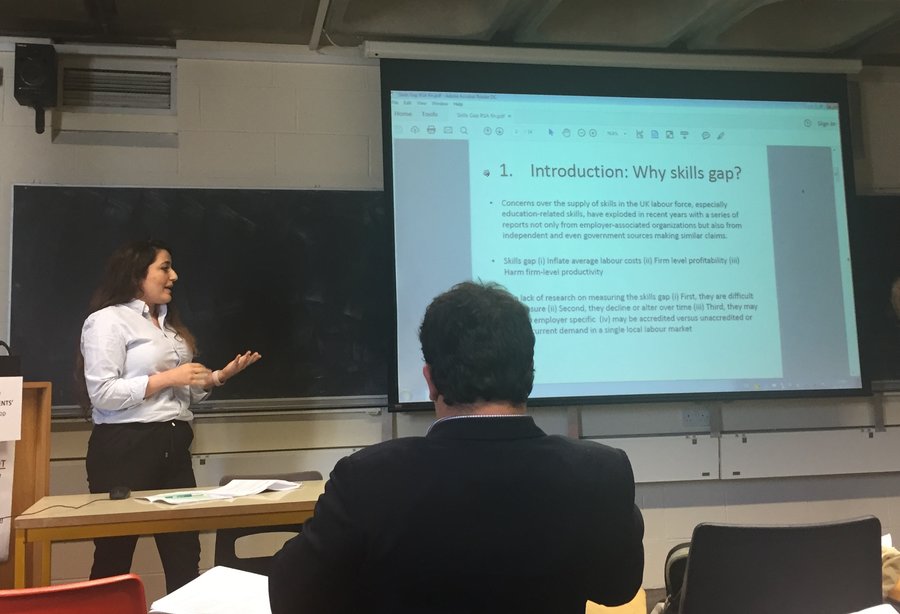
The RSA Annual Conference 2017 was held 4-7 June in Dublin. The conference theme was The Great Regional Awakening: New Directions and it featured presentations and panel sessions by leading scholars, experts, and researchers. In attendance from City REDI were Professor Anne Green, Professor Raquel Ortega Argiles, Dr Catherine Harris and Deniz Sevinc. City-REDI organised two sessions at the conference on the theme of Devolution and the Transformation of Regional Economies.
The first session was opened with a presentation from Catherine Harris with her paper co-authored with City-REDI’s Professor John Bryson. Their paper entitled Resources, Assets & Linkages: Towards a Resource Based View of Regional Economies, recovers an old debate on linkages and uses it to develop a new conceptual framework based on the development of a resource based view of regional economies. This paper applies the Resource Based View of Regional Economies of the firm approach but at a regional level to explore regional resources that provide inimitability and differentiation.

The second paper of the session was presented by Professor Phillip McCann of the University of Sheffield and co-authored by City REDI’s Professor Raquel Ortega Argiles. Their paper on Place-based Policy and Institutional Configuration examines the issues associated with implementing place-based regional policy, industrial policy or urban policy within an appropriate institutional set-up. The paper also examines some of the initiatives and issues arising in different countries which are aiming to improve different types of policy-institutional reconfigurations and provides insights as to the challenges and possibilities such realignments are permitting.

Deniz Sevinc also presented a further paper from City REDI on Measuring Sector Skills Gaps: A Regional Analysis of a Local Labour Market. This paper is co-authored with Professor John Bryson and Professor Simon Collinson. Their paper provides an in-depth analysis of the skills gap, and provides a framework that covers England in addition to three main local enterprise partnership areas in West Midlands: Black Country, Greater Birmingham and Solihull and, Coventry and Warwickshire. It provides both a detailed picture of the UK’s skill situation as well as the desired skills needs to be developed in the labour market, and aids future decisions on both whether more should be done to tackle the skills gap and how this is best done in practice.

Other papers in the City REDI’s sessions included those from Aksel Ersoy of Oxford Brookes University and Alex Marsh, University of Bristol on Devolution and the Variable Geography of Smart City; Petra Kecskés of Széchenyi István University, Hungary on The Role of Relational Proximity in Inter-organisational Relations and Communication; and Patrick Kilfoil of McGill University, Canada on Innovation Districts in Spatial Planning and Regional Development: Is there Substance Beyond the Shared Discourse?
Elsewhere at the RSA, City REDI’s Professor Anne Green gave two papers. Her first paper entitled Young People’s Challenges in Transitioning to Employment: Spatial and Temporal Perspectives, explores how young people’s experience of unemployment and their economic position more broadly is categorised and recorded (or not) in official statistics, and how this has varied geographically and over time, with particular reference to the UK. It examines which young people where fall within the ‘official public gaze’ regarding youth employment and unemployment, and how this has implications for the scale and nature of policy interventions to address issues of youth unemployment, non-employment and poor quality employment.
Professor Green’s second paper on Inclusive growth in UK cities: mainstreamed or sidelined?, is co-authored with Paul Sissons and Kevin Broughton, both of Coventry University. This paper examines recent experiences of devolution against a framework through which to assess the extent to which inclusive growth concerns form a central or peripheral concern in policymaking, and which maps the nature of various activities with the potential to contribute to inclusive growth outcomes. It also considers what the nature of early stages of devolution suggest for the prospects of an inclusive growth agenda in cities going forward.
